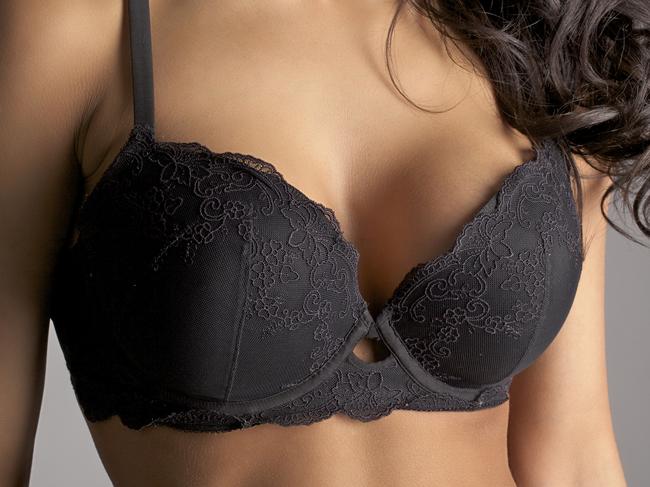Plastic surgeons using sex to sell cosmetic surgery, study finds
Plastic surgeons in NSW are using sex to sell surgery with “unrealistic” photographs of models in erotic poses used to advertise their services, a new study looking at advertising compliance has found. Some surgeons are also clearly photoshopping “before and after” pictures.
One in 10 plastic surgeons in NSW are using sex to sell surgery by posting “unrealistic” photographs of models in provocative poses on websites.
Despite an overhaul of advertising guidelines by the Australian Health Practitioner Regulation Agency (AHPRA) in 2014, a new study has found some plastic surgeons across the states and territories are still advertising their services inappropriately.
Among other breaches included using clearly photoshopped “before and after” photographs, and also offering discounts and time-limited offers, and the promise of gifts.
However, study authors — plastic surgeon Dr Anthony Penna and Sydney University Associate Professor, Dr Damian Marucci — warned their investigation did not include self-proclaimed “cosmetic” surgeons, who remained unregulated.

Published in the Australasian Journal of Plastic Surgery, the “Compliance of plastic surgeons with advertising guidelines” examined the website content of more than 300 plastic surgeons across Australia.
While it found overall compliance to be high, there were still some surgeons choosing to ignore the guidelines, Dr Marucci said.
MORE FROM LINDA SILMALIS:
51 killers, terrorists, and sex offenders in our suburbs
Baby-faced killer ‘exhausted’ from daily sex in prison
In NSW, the greatest area of noncompliance was the type of photographs used to advertise services, with the images of 14 per cent of plastic surgeons featuring models or patients in provocative poses.
Given the explosion in numbers of woman and men seeking out plastic surgery in the past two decades, Dr Marucci said the sector had a duty of care to the public to ensure they understood the procedures were “invasive” and not without risks.
“As medical practitioners, we are providing invasive surgical services to patients, which involve potential risk and complications,” he said.
“It’s something people need to go in to without emotion. The goal of (the guidelines) are to try to limit the emotive aspects of hardcore advertising to realistic results, using bland clinical photographs, for example, with bland backgrounds.

“It’s important sexualised images that don’t fully represent the clinical negatives of the procedure have no place.”
The study noted how there were discussions in some countries such as Japan to ban “before and after” photographs — a move Dr Marucci said he would not agree with.
Across other states and territories, almost one in five plastic surgeons in South Australia and more than one in 10 in Western Australia breached the guidelines by using “inappropriate phraseology”.
This included offering plastic surgery as a “gift” to yourself, suggesting it will “make you feel better about yourself” and promoting “fabulous breasts”, the study said.
Another one in five in Western Australia were also found to be offering gifts or discounts.
However, the authors, who will next review social media advertising, called for greater regulation over “cosmetic” surgeons — medical practitioners without specialist plastic and reconstructive surgery training completed under the auspices of the Royal Australasian College of Surgeons.
“Anyone with a medical degree can call themselves a cosmetic surgeon,” Dr Penna said.
A NSW Health spokeswoman said the Council of Australian Governments (COAG) Health Council was considering whether any legislative change was needed in relation to the use of the title “cosmetic surgeon”.
“The COAG Health Council released a consultation paper on the future of regulation of health practitioners in 2018,” she said.
“The paper, among other things, sought submissions on whether the title ‘cosmetic surgeon’ should be protected.
“Jurisdictions are currently considering the submissions received on the consultation paper.”


